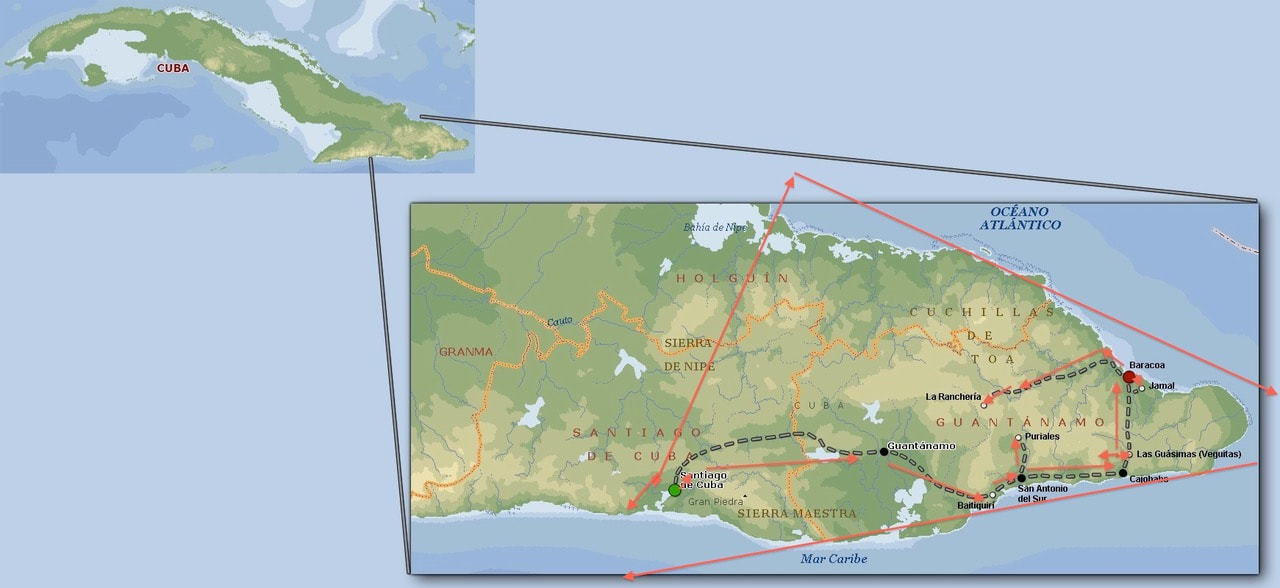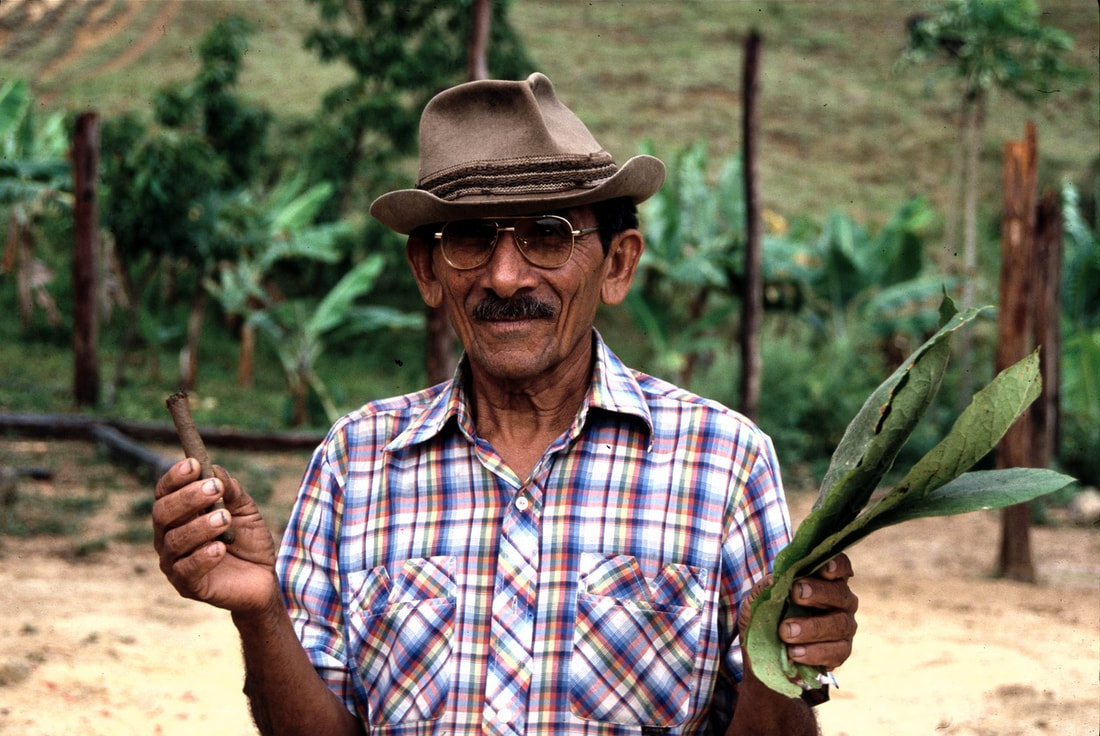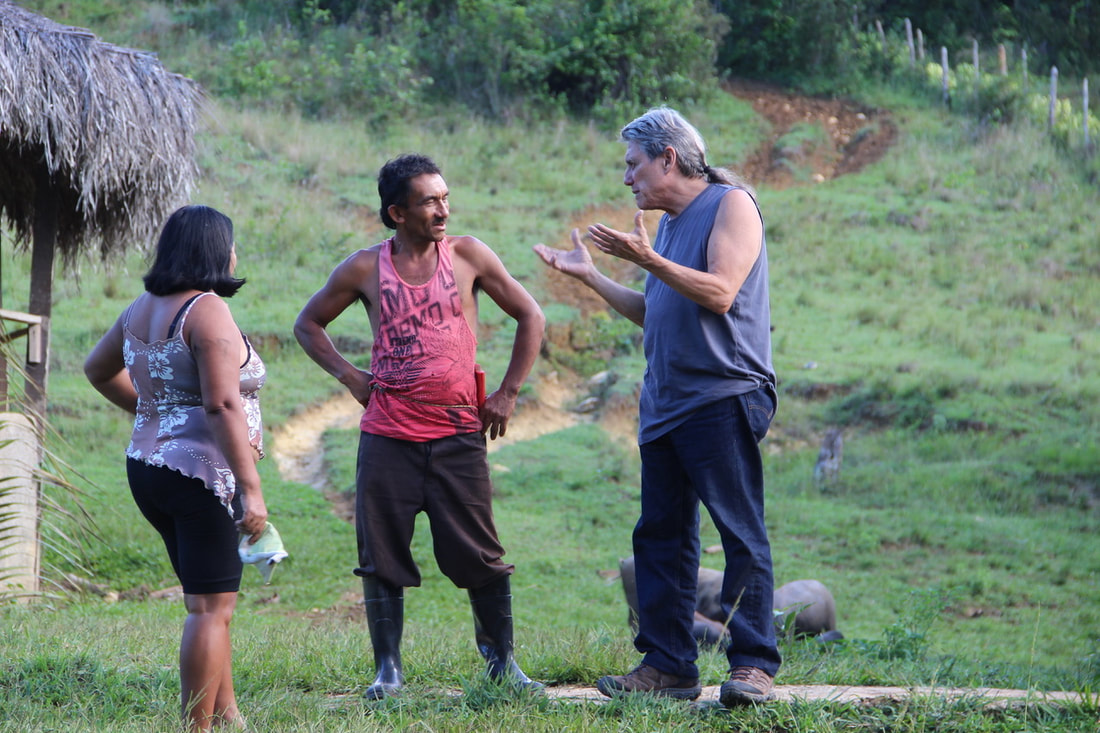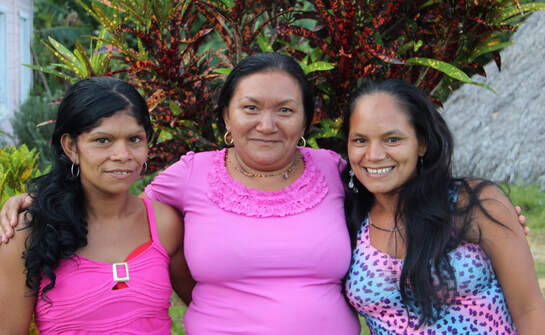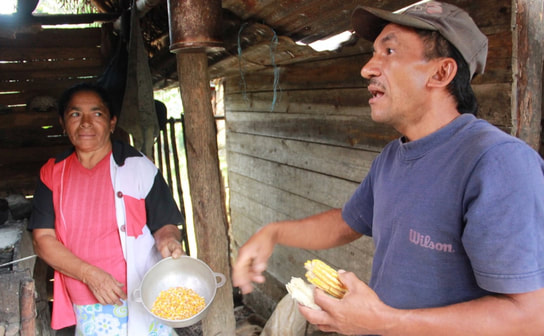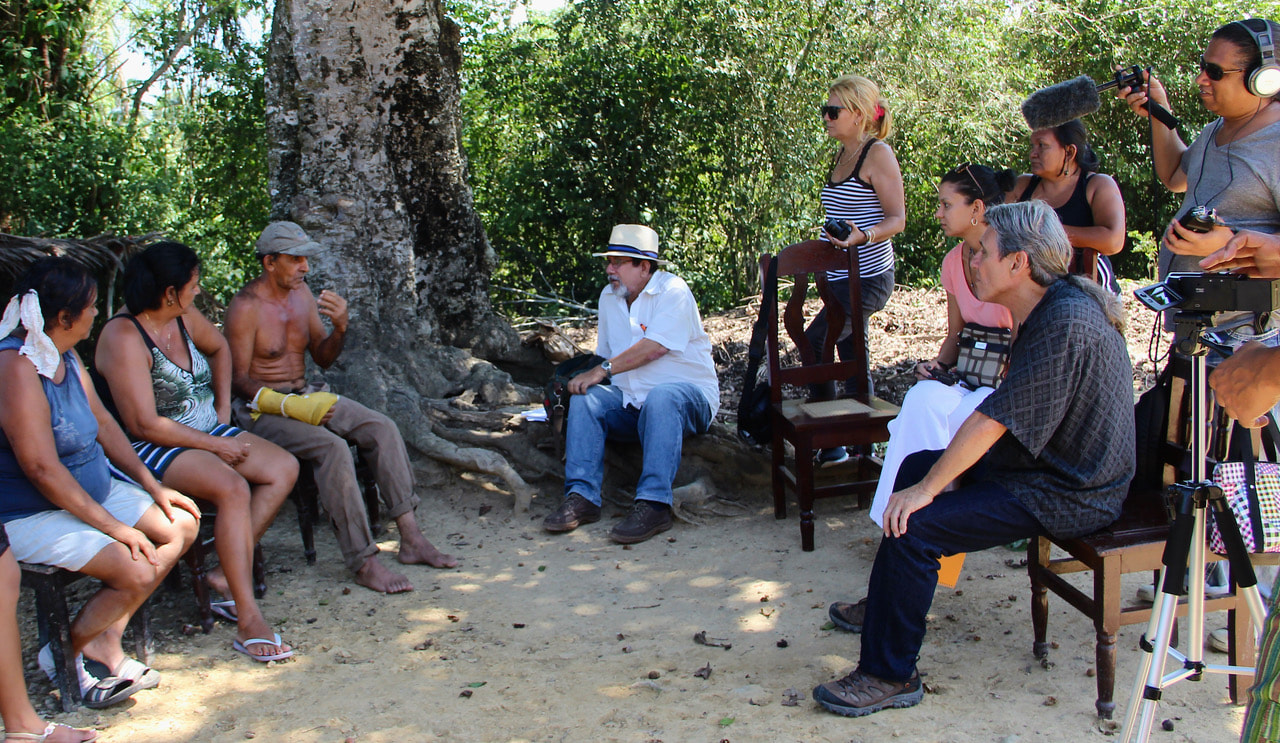Cuba Indigeneity: Gran Familia Valores y Saberes
Plenty Canada’s project, Cuba Indigeneity: Gran Familia Valores y Saberes (Great Family Values and Knowledge), is based in the remote mountain and coastal region of eastern Cuba, the Oriente. A significant population of Taino-guajiro kinship families, under the leadership of a traditional cacique, women elders, and a new generation of leaders, is currently emerging and networking across communities. The estimated population of the GranFamilia is 15,000.
This population, marginalized through most of the 20th Century, is in the process of self-actualization. The purpose of the project is to assist this self-actualization, recognizing the traditional values and knowledge of the communities, and to assist their enhanced visibility.
This population, marginalized through most of the 20th Century, is in the process of self-actualization. The purpose of the project is to assist this self-actualization, recognizing the traditional values and knowledge of the communities, and to assist their enhanced visibility.
This timely initiative supports Indigenous cultural and educational gatherings, projects in documentation, and intergenerational transfer of traditional knowledge and development of agro-ecological production opportunities. Cuba Indigeneity is a project in cultural revitalization that manifests as a long-term community enhancement-development initiative. It is assisting Native Cuban families to regather and strengthen long-term tribal bonds. Cuba Indigeneity works with the legacy people of indigenous culture in the eastern region and focuses on the areas of cultural preservation and practice of natural world traditions, healing arts, and medicinal plant use, Indigenous conuco (perma-cultural) eco-systemic food-shelter self-sufficiency and forest use and conservation. Among other gatherings, it features educational encounters to explore the region's Indigenous legacies in agro-ecological practice, music, history, and literature.
We started 2019 on a high note for the launching of the new phase of the project, Caribbean Indigeneity Cuba, Gran Familia - Valores y Saberes. Key activities have begun and most importantly, the leadership group from the Native communities is intensely motivated to the revitalization process.
We started 2019 on a high note for the launching of the new phase of the project, Caribbean Indigeneity Cuba, Gran Familia - Valores y Saberes. Key activities have begun and most importantly, the leadership group from the Native communities is intensely motivated to the revitalization process.
Despite the severe limitations imposed by the COVID-19 pandemic, the work was launched and set the pattern of work and organization for the Caribbean Indigeneity project. The activities weave together the Native kinship communities, honoring and stimulating the elders who also want to raise the consciousness of a new generation about the teachings of their own ancestors.
Already, our plans have begun to bear fruit in communities throughout the area. At La Rancheria, for example, a water project is currently underway that taps into more voluminous sources of water, and the community group there (a mutual-help collective among six communities: Cajobabo, Veguitas, Yateras, La Rancheria, Fray Benito, and Tames) is building tanks and piping that will service twelve different houses in the community. In early 2022, that same community group repaired the “caney,” the circular, thatched-roof structure where meeting and ceremonies are held. At the Fray Benito community, they are currently hard at work rebuilding a casaba-producing complex (an ancient Taino food). In terms of food sovereignty more generally, the various members of the working group often travel by foot or horseback to spend several days assisting different settlements with planting and harvesting.
These largely self-sufficient small farming communities are re-enhancing their indigenous culture of collaboration and partnership, in the context of the country’s governmental structures. The purpose is to self-actualize and thus diminish domination of economic and cultural activity. The emergent leadership of elder and young women is determining the directions of several of the proposed economic projects.
The resilient but remotely situated Indian farmers are good producers but lack crucial support to get their products to market. Others in sewing cooperatives and food production (culinary), as well as carpentry shops and other possibilities are contemplated.
Already, our plans have begun to bear fruit in communities throughout the area. At La Rancheria, for example, a water project is currently underway that taps into more voluminous sources of water, and the community group there (a mutual-help collective among six communities: Cajobabo, Veguitas, Yateras, La Rancheria, Fray Benito, and Tames) is building tanks and piping that will service twelve different houses in the community. In early 2022, that same community group repaired the “caney,” the circular, thatched-roof structure where meeting and ceremonies are held. At the Fray Benito community, they are currently hard at work rebuilding a casaba-producing complex (an ancient Taino food). In terms of food sovereignty more generally, the various members of the working group often travel by foot or horseback to spend several days assisting different settlements with planting and harvesting.
These largely self-sufficient small farming communities are re-enhancing their indigenous culture of collaboration and partnership, in the context of the country’s governmental structures. The purpose is to self-actualize and thus diminish domination of economic and cultural activity. The emergent leadership of elder and young women is determining the directions of several of the proposed economic projects.
The resilient but remotely situated Indian farmers are good producers but lack crucial support to get their products to market. Others in sewing cooperatives and food production (culinary), as well as carpentry shops and other possibilities are contemplated.
Cuba Indigeneity proposes to address:
• marginalization of a core indigenous Cuba population, following the official historical dictum of a complete extinction;
• problem of cultural dissolution because of dispersals of trunk families from their home geography of the 20th century;
• loss of indigenous identity and traditional knowledge; and
• the need to advantage emergence of women's leadership as primary in the networking or "reweaving" of Native family community homesteads and enterprises.
• marginalization of a core indigenous Cuba population, following the official historical dictum of a complete extinction;
• problem of cultural dissolution because of dispersals of trunk families from their home geography of the 20th century;
• loss of indigenous identity and traditional knowledge; and
• the need to advantage emergence of women's leadership as primary in the networking or "reweaving" of Native family community homesteads and enterprises.
The principal goal is to sustain and expand consciousness and articulation of Cuban Indigenous people by assisting the Gran Family process in coming together, as well as to assist outreach by the Native leaders and people to the larger socio-political circles in the country at large.

